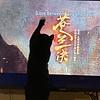Take a photo of a barcode or cover
Baker, Kage. In the Garden of Iden. The Company No. 1. Tor, 1997.
The Company series is based on the most original time-travel premise I can remember. Most of the novels are tolerably stand-alone, but In the Garden of Iden is no doubt the best place to start. Time travelers from the future recruit children in the past, modify them to make them immortal, and use them to recover and conceal items officially lost to history so that people in the future can retrieve them. This first novel follows the history of a Spanish woman called Mendoza, who the historical record says disappeared in the Inquisition. The Company rescued her and trained her as a botanist to recover extinct plants; when, at 18, she finds herself undercover in Tudor England in the reign of Bloody Mary, she is out of place in more ways than she can handle. Baker was an expert in Renaissance history and culture, and she uses that to good advantage here. In the end, Mendoza has to reconcile the intractability of religion and superstition with her enlightened scientific and historical education. Mendoza’s history is rounded out in The Sons of Heaven (2007). The whole series is worth reading; I also especially enjoyed Mendoza in Hollywood (2000).
The Company series is based on the most original time-travel premise I can remember. Most of the novels are tolerably stand-alone, but In the Garden of Iden is no doubt the best place to start. Time travelers from the future recruit children in the past, modify them to make them immortal, and use them to recover and conceal items officially lost to history so that people in the future can retrieve them. This first novel follows the history of a Spanish woman called Mendoza, who the historical record says disappeared in the Inquisition. The Company rescued her and trained her as a botanist to recover extinct plants; when, at 18, she finds herself undercover in Tudor England in the reign of Bloody Mary, she is out of place in more ways than she can handle. Baker was an expert in Renaissance history and culture, and she uses that to good advantage here. In the end, Mendoza has to reconcile the intractability of religion and superstition with her enlightened scientific and historical education. Mendoza’s history is rounded out in The Sons of Heaven (2007). The whole series is worth reading; I also especially enjoyed Mendoza in Hollywood (2000).
I think the idea of The Company is really cool. Time travel! Immortals! Though I do have a question about time paradoxes. If you can't change recorded history, no matter how hard you try, fine. But now it's set up so a lot more of history is being recorded than ever before, right? Isn't that causing problems?
I liked it and I'll definitely read more of the series. Though I do hope it has a conclusion of some sort since the author's in ill health.
My one problem with it is that there's this introduction that explains the backstory, which is fascinating, but then kind of took away from the joy of discovery. You're no longer learning things along with the main character, because you already know more than she does up until a certain point.
Yet.. well, here's a paradox on its own.. the main character can do things that we didn't know she could do. Just, out of nowhere, she's doing some new Immortal trick that we the reader weren't aware she could do.
So I wanted to know no more than the main character. Yet I also did want to know _as much as_ the main character.
Anyway, yes, will read more.
I liked it and I'll definitely read more of the series. Though I do hope it has a conclusion of some sort since the author's in ill health.
My one problem with it is that there's this introduction that explains the backstory, which is fascinating, but then kind of took away from the joy of discovery. You're no longer learning things along with the main character, because you already know more than she does up until a certain point.
Yet.. well, here's a paradox on its own.. the main character can do things that we didn't know she could do. Just, out of nowhere, she's doing some new Immortal trick that we the reader weren't aware she could do.
So I wanted to know no more than the main character. Yet I also did want to know _as much as_ the main character.
Anyway, yes, will read more.
Historical, sci-fi fiction. My favourite. I was so so excited about reading this and from the first page I was hooked. It was just after Henry the 8th and this was a perfect tie in for me, as I had just finished reading 'Bess of Hardwick' - which was wonderful - so I had a lot of context for the book. The main protagonist was female, another plus, plus we had the tie in religious debate to an extent, so it ticked a lot of boxes for me. So why 3 stars I hear you ask? Well, I felt as though the story overall did not fulfil its promise.
I felt as though a lot of the book was about a love story, which I can enjoy, but I wanted to know more about the characters, their backgrounds, 'The Company', and while it did partially deliver it felt lacking and it really dragged in places. The last third to a quarter I was basically skim reading just to get to the end. Having read a couple of other sites about the book, I established that you do get a lot more background to the formation of 'The Company', how it came to be, what it is, what the mystery is, and I will definitely be reading the next one in the series - sample already downloaded to my kindle - I just felt that more could have been done with the premise in this book.
What I did really enjoy, however, was that the main protagonist was very real and very relateable. She is set up as this immortal being, stuffed with knowledge, yet she was still flawed, still unknowing, and making all the mistakes we all make. She was learning life lessons, rather than simply full of rational, objective knowledge. I was rooting for her the whole way through, and wanting to slap some sense into her - because clearly, I am so wonderfully wise myself *ahem*.
There were a couple of bits I thought didn't make sense. For example, the protagonist and her colleagues were able to talk psychically and could link into each others thoughts in times of high tension, but there was one particular part where a colleague from outside their project came to visit and drop off a radio disguised as a relic. Instead of simply transmitting their thought into their minds that there was a radio embedded in, they instead had a convoluted conversation and then switched the radio on - set at a frequency that mortals can't hear - to resolve the issue. That quite annoyed me, I like consistency! Why make something more complicated than it needs to be, simply as a dramatic device?
Overall, I did really enjoy this book, and as I said I will be reading the next one, so fingers crossed it gets better from here on out and that it answers more of my questions and adds a bit more intrigue!
I felt as though a lot of the book was about a love story, which I can enjoy, but I wanted to know more about the characters, their backgrounds, 'The Company', and while it did partially deliver it felt lacking and it really dragged in places. The last third to a quarter I was basically skim reading just to get to the end. Having read a couple of other sites about the book, I established that you do get a lot more background to the formation of 'The Company', how it came to be, what it is, what the mystery is, and I will definitely be reading the next one in the series - sample already downloaded to my kindle - I just felt that more could have been done with the premise in this book.
What I did really enjoy, however, was that the main protagonist was very real and very relateable. She is set up as this immortal being, stuffed with knowledge, yet she was still flawed, still unknowing, and making all the mistakes we all make. She was learning life lessons, rather than simply full of rational, objective knowledge. I was rooting for her the whole way through, and wanting to slap some sense into her - because clearly, I am so wonderfully wise myself *ahem*.
There were a couple of bits I thought didn't make sense. For example, the protagonist and her colleagues were able to talk psychically and could link into each others thoughts in times of high tension, but there was one particular part where a colleague from outside their project came to visit and drop off a radio disguised as a relic. Instead of simply transmitting their thought into their minds that there was a radio embedded in, they instead had a convoluted conversation and then switched the radio on - set at a frequency that mortals can't hear - to resolve the issue. That quite annoyed me, I like consistency! Why make something more complicated than it needs to be, simply as a dramatic device?
Overall, I did really enjoy this book, and as I said I will be reading the next one, so fingers crossed it gets better from here on out and that it answers more of my questions and adds a bit more intrigue!
Only read on the rec of my library friend. So NOT what I would pick, put a fantastic fantasy that had me thinking about it between books in this series.
This book started off with a magnificent dystopian beginning, but turned utterly dull after the first few chapters.
A co-worker and I got to talking about books a couple of weeks ago. (Not surprising, considering what I do for a living.) And we discovered a mutual interest in time travel novels. The next day, she brought me a stack from her own collection. In that stack were Kage Baker’s In the Garden of Iden and Sky Coyote, the first two books in her series about the Company...
Read the rest of my review at A Bookish Type.
Read the rest of my review at A Bookish Type.
An interesting mix of science fiction and historical fiction that made me wonder which parts were based on actual history, and which parts were made up.
challenging
dark
emotional
reflective
tense
medium-paced
Plot or Character Driven:
Character
Strong character development:
Yes
Loveable characters:
Complicated
Diverse cast of characters:
Yes
Flaws of characters a main focus:
Yes





